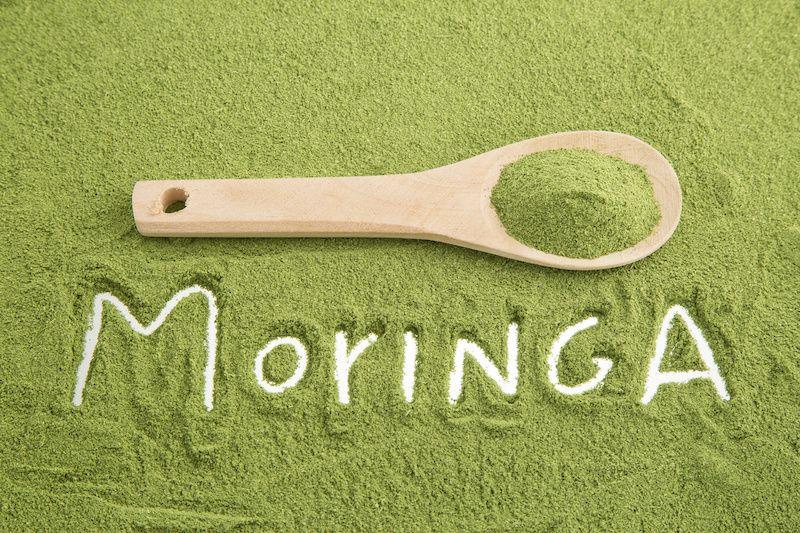Overweight, diabetes, heart attacks, accelerated aging, premature death, kidney failure: the pitfalls of sodas and sugary drinks and how to make a teenager understand them.
Sugary drinks contain added sugar, particularly in the form of sucrose or glucose-fructose syrup, the harmful effects of which have been widely reported on LaNutrition.fr. A team from the Harvard School of Public Health estimated that 184,000 deaths worldwide are attributable to sugary drinks.
In France, even though sugary drink consumption doesn't reach that of Germany or America, it has steadily increased in recent years. All necessary measures should therefore be implemented to inform consumers and encourage them to significantly reduce their consumption of sodas and sugary drinks, including through taxes. Here's why you should avoid drinking sugary drinks and how to educate your children accordingly...
Sugary drinks promote visceral fat
A new study published in the journal Circulation reports that consuming sugary drinks every day is associated with an increase in visceral fat, which in turn increases the risk of diabetes and heart disease.
Visceral fat is fat that is found "deep" around several organs such as the liver, pancreas, and intestines. Visceral fat affects how our hormones work and plays an important role in insulin resistance, a risk factor for type 2 diabetes and heart disease.
Among the 1,003 study participants, those who drank at least one sugary drink per day had an increase in visceral fat of 852 cm3 after 6 years of follow-up, compared to only 658 cm3 among those who never drank one.
Even light ones, they increase the risk of diabetes
A French study of 66,188 women confirms an association between sugary drink consumption and the risk of type 2 diabetes. However, it also reveals a higher risk of diabetes with so-called "light" drinks, which contain artificial sweeteners, than with sugary drinks.
The results show that women who consume "light" sugary drinks drink more than those who consume "normal" sugary drinks (2.8 glasses/week or 568 mL versus 1.6 glasses/week or 328 mL on average, respectively).
Compared to those who did not consume any at all, women who drank the most sugary drinks (more than 359 mL/week) had a 34% increased risk of diabetes during the study (14 years); those who drank the most "diet" drinks (more than 603 mL/week) had a risk multiplied by 2.21. For the same quantity consumed, the risk of diabetes was higher when it came to "diet" drinks than sugary drinks. The risk of developing diabetes was 15% higher for a consumption of 0.5 L/week and 59% higher for 1.5 L/week respectively.
And you should know that even if you are thin, drinking sugary drinks increases your risk of diabetes.
They contribute to hypertension
Researchers from Connecticut studied the impact of sugary drinks on blood pressure. To do this, they conducted a systematic literature review on the relationship between sugary drink consumption and blood pressure. They selected 12 studies involving 409,707 participants.
All studies showed a positive relationship between increased sugary drink intake and hypertension. The results were statistically significant in 10 out of 12 studies. Five out of 12 articles showed an increase in average blood pressure, and seven indicated an increase in the incidence of high blood pressure: people who drank sugary drinks increased their risk of high blood pressure by 26 to 70%, compared to those who did not. Furthermore, adolescents who drank at least three sugary drinks per day were 87% more likely to have high blood pressure.
According to the authors, sugary drinks may reduce nitric oxide levels in the body. Nitric oxide is a vasodilator: by increasing the diameter of blood vessels, it helps reduce blood pressure. The increase in blood pressure could also be a response to the salt present in drinks.
They increase the risk of cardiovascular disease (and related mortality)
Researchers at the Harvard School of Public Health, in a study of more than 125,000 people, found convincing evidence that sugary drinks are associated with obesity, the risk of developing cardiovascular disease, and type 2 diabetes.
They examined data collected between 1980 and 2010 on 84,628 women from the Nurses Study, and data on 42,908 men collected between 1986 and 2010 as part of the Health Professionals Follow-up Study. None of the participants had diabetes, cardiovascular disease, or cancer at the start of their participation, and all were followed up every 4 years. They also used results from other prospective studies and meta-analyses.
Results: People who consume 1 to 2 sugary drinks per day have a 35% increased risk of heart attack or sudden death, a 16% increased risk of stroke and a 22% increased risk of developing type 2 diabetes.
In a 2018 study presented at the American Heart Association's Epidemiology and Prevention/Lifestyle and Cardiometabolic Health Scientific Sessions, researchers found that sugary drinks increase the risk of premature death from cardiovascular disease.
For 6 years, they followed a population of approximately 18,000 adults aged over 45. The participants answered a dietary questionnaire to assess their consumption of sugary drinks (sodas and fruit juices) and sugary foods (desserts, breakfast cereals, etc.).
Their results show that participants who drink at least 700 mL of sugary drinks daily are twice as likely to die prematurely from cardiovascular disease as those who drink less than 30 mL per day. The researchers also found an increased risk of death from all causes among heavy consumers of sugary drinks.
While sugary drinks are linked to premature death from cardiovascular disease, sugary foods are not, according to the researchers' findings. Sugary drinks—which generally contain very few other nutrients—work by "flooding" the body with sugars. Sugary foods, on the other hand, may contain other nutrients, such as fats and proteins, that slow metabolism.
They are bad for the kidneys
In a new study published in late 2018 in the Clinical Journal of the American Society of Nephrology, 3,003 participants completed a dietary questionnaire that determined the types of beverages they consumed between 2000 and 2004. All participants—whose kidney function was normal at the start of the study—were followed for nine years.
During the follow-up period, 185 participants developed chronic kidney disease. The results show that those who consumed the most sugary drinks had a 61% higher risk of developing kidney failure than participants who consumed the least sugary drinks.
Sugary beverage consumption can directly or indirectly impact kidney function. Sugary beverages increase the risk of obesity, which in turn increases the risk of kidney failure. Studies have also shown that high sugary beverage consumption can directly impact the incidence of kidney disease. The added fructose found in high amounts in sugary beverages increases the production of uric acid, which can itself lead to the development of kidney disease.
Sugary drinks and early puberty: a link?
Girls who frequently drink sugary drinks tend to have their first period earlier than those who don't. This is a concern because having a period earlier is associated with an increased risk of breast cancer later in life, as well as type 2 diabetes.
In this study, researchers followed 5,583 girls from the Growing Up Today Study, ages 9 to 14, from 1996 to 2001. At the beginning of the study, none of the girls had had their first period. By the end of the study, all but 3% of the girls had menstruated.
Regardless of age, a non-menstruating girl who consumes more than one and a half servings of sugary drinks per day is 26% more likely to have her first period within the next month than a girl who drinks no more than two sugary drinks per week. The results show that girls who drink more than one and a half servings of sugary drinks per day have their first period 2.7 months earlier than those who drink two or fewer per week. This effect is independent of body mass index, height, total food intake, and other factors, such as physical activity. The researchers did not find an association between diet soft drinks (with intense sweeteners) or fruit juices and the age of menarche.
"Our study fuels growing concern about the widespread consumption of sugary drinks among children and adolescents in the United States and elsewhere. The main concern is obesity, but the results of our study suggest that menarche occurs earlier in girls who consume a lot of sugary drinks. These findings are important in the context of early puberty observed in developed countries, although the reasons for this are unknown," explains Dr. Karin Michels, who led the research.
They would make us age faster and increase the risk of premature death.
Sugary soda consumption is associated with shorter telomeres. Telomeres are the ends of chromosomes and are a combination of DNA and proteins. They protect chromosomes and help maintain the integrity of genetic material. Their shortening is a marker of cellular aging. Consuming 60 cl of sugary drinks daily, the equivalent of two cans, would result in premature aging of 4.6 years. In the study, 21% of participants exceeded the two-can threshold.
"Regular consumption of sugary sodas appears to influence the development of diseases, not only because it disrupts the body's sugar-control metabolism, but also because it accelerates the aging of cell tissues," explains Elissa Epel, one of the co-authors of this study.
A study from the Harvard University School of Public Health (Boston, Massachusetts) published in March 2019 in the journal Circulation found a link between sugary drink consumption and early mortality, from cardiovascular disease but also from cancer. Compared to people drinking less than one soda per month, those drinking 1 to 4 per month saw their risk of early mortality increase by 1 to 4%. Drinking 2 to 6 sugary drinks per week was linked to a 6% increase in this same risk, while drinking 1 to 2 sodas per day was associated with a 14% increased risk of early death. This increased risk rose to 21% for those consuming 2 or more sodas per day. This association between sugary drink consumption and early mortality risk was, moreover, more pronounced in women than in men.
For the authors of this study, replacing these sugary drinks with their light equivalents (based on sweeteners) is not necessarily a good idea: if the consumption of these drinks is associated with a lower risk of early mortality, it is only when it is not too high.
How to get your teen to cut back on soda?
If you drink sugary drinks, your kids will too, so start by setting an example. A study published in the British Journal of Nutrition shows that teens' sugary drink consumption is associated with their parents' consumption and the availability of these drinks in their homes. Also, keep in mind that to change their drinking habits, teens need concrete messages. This is what a study published in the American Journal of Public Health found: providing information about how far it would take to walk or run to burn off a soda led teens to switch to lower-calorie drinks. And these healthier choices persisted for several weeks after the informational messages placed in a supermarket were removed. "Consumers don't really understand what 'a soda has 250 calories,'" says study author Dr. Sara N. Bleich. "If you're going to give information about calories, there's definitely a better way." Our research shows that when you explain calories in concrete ways, such as how many miles you need to walk to burn them, you can encourage a change in eating behavior."
Sources Jiantao Ma, Nicola M. McKeown, Shih-Jen Hwang, Udo Hoffman, Paul F. Jacques, Caroline S. Fox. Sugar-Sweetened Beverage Consumption is Associated With Change of Visceral Adipose Tissue Over 6 Years of Follow-Up. Traffic, 2016; CIRCULATIONAHA.115.018704 DOI: 10.1161/CIRCULATIONAHA.115.018704 Malik AH, Akram Y, Shetty S, Malik SS, Yanchou Njike V. Impact of Sugar-Sweetened Beverages on Blood Pressure. Am J Cardiol. 2014 May 1;113(9):1574-1580. doi: 10.1016/j.amjcard.2014.01.437. Epub 2014 Feb 12. Fagherazzi G, Vilier A, Saes Sartorelli D, Lajous M, Balkau B, Clavel-Chapelon F. Consumption of artificially and sugar-sweetened beverages and incident type 2 diabetes in the Epidemiological Study among women of the Mutuelle Generale de l'Education Nationale-European Prospective Investigation into Cancer and Nutrition cohort. Am J Clin Nutr. 2013 Jan 30. Malik VS, Hu FB. Fructose and Cardiometabolic Health: What the Evidence From Sugar-Sweetened Beverages Tells Us. J Am Coll Cardiol. 2015 Oct 6;66(14):1615-24. doi: 10.1016/j.jacc.2015.08.025. Mueller NT, Jacobs DR Jr, MacLehose RF, Demerath EW, Kelly SP, Dreyfus JG, Pereira MA. Consumption of caffeinated and artificially sweetened soft drinks is associated with risk of early menarche. Am J Clin Nutr. 2015 Jul 15. pii: ajcn100958. [Epub ahead of print] Wilke JC van Ansem, Frank J. van Lenthe, Carola TM Schrijvers, Gerda Rodenburg and Dike van de Mheen. Socio-economic inequalities in children's snack consumption and sugar-sweetened beverage consumption: the contribution of home environmental factors. British Journal of Nutrition (2014), 112, 467–476 Vasanti S. Malik et al, Long-Term Consumption of Sugar-Sweetened and Artificially Sweetened Beverages and Risk of Mortality in US Adults, Circulation (2019).Source: La Nutrition.fr








Leave a comment
All comments are moderated before being published.
This site is protected by hCaptcha and the hCaptcha Privacy Policy and Terms of Service apply.